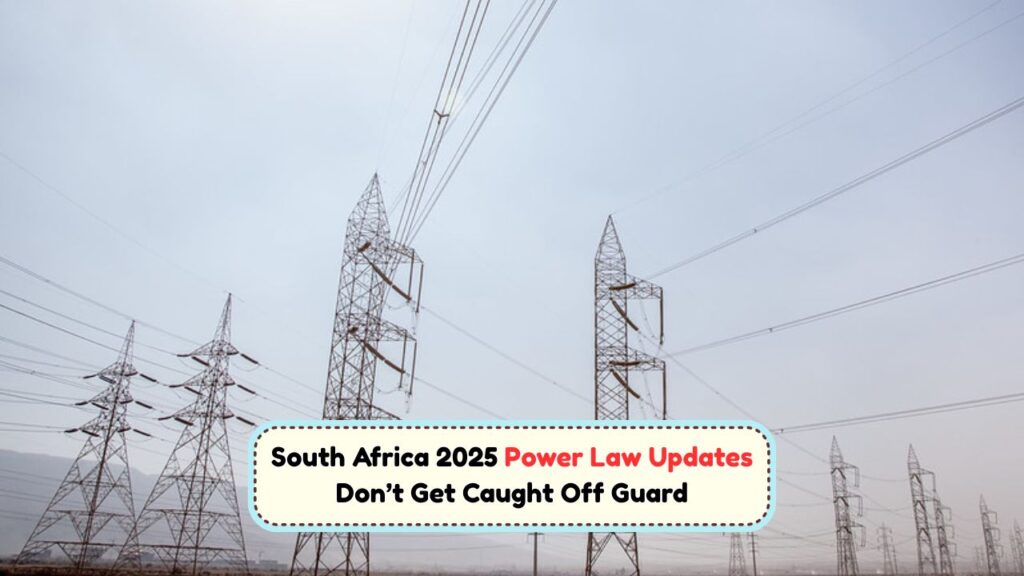2025 Electricity Rules Unveiled: As South Africa prepares for a transformative shift in its energy landscape, the newly unveiled 2025 electricity rules promise significant changes that will affect consumers and industry players alike. These regulations are set to redefine how electricity is generated, distributed, and consumed, with a strong emphasis on sustainability and efficiency. With the global push towards renewable energy sources, South Africa is making strides to align with international standards, ensuring a reliable and environmentally friendly power grid. As the nation gears up for these changes, both consumers and businesses must understand the implications and opportunities that come with these new regulations.

Understanding the 2025 Electricity Rules in South Africa
The introduction of the 2025 electricity rules marks a pivotal moment for South Africa’s energy sector. These regulations are designed to overhaul the existing infrastructure, promoting cleaner energy sources such as solar, wind, and hydropower. By incentivizing renewable energy investments, the government aims to reduce carbon emissions and minimize reliance on coal-fired power plants. The transition is expected to create numerous opportunities for local businesses and entrepreneurs within the renewable energy sector, fostering economic growth and job creation. Moreover, these rules intend to enhance grid reliability, reducing the frequency and impact of load shedding, which has been a persistent challenge for South Africans. As part of this initiative, consumers are encouraged to adopt energy-efficient practices, supported by government-led awareness campaigns and potential financial incentives.
Implications of Major Changes in Electricity Regulations
The impending changes in electricity regulations bring both challenges and opportunities. Businesses and households will need to adapt to new standards and technologies, which may initially require significant investment. However, the long-term benefits, including lower energy costs and a more stable power supply, are expected to outweigh these initial expenditures. For industries, particularly those heavily reliant on energy, the shift to renewable sources could result in more predictable and potentially lower operational costs. Furthermore, the emphasis on sustainability aligns with global trends, positioning South African businesses to compete more effectively on the international stage. As consumers, embracing these changes means contributing to a cleaner environment and enjoying the benefits of modernized, efficient energy use.
How South Africans Can Prepare for the 2025 Electricity Changes
Preparing for the 2025 electricity changes involves understanding the new regulations and their impact on everyday life. Consumers are encouraged to explore renewable energy options, such as installing solar panels, which can reduce dependency on the national grid and offer long-term savings. Government programs may offer subsidies or tax incentives to ease the financial burden of such installations. For businesses, investing in energy-efficient technologies and practices will be crucial not only for compliance but also for staying competitive. Educational workshops and resources are being made available to guide South Africans through this transition. By staying informed and proactive, individuals and enterprises can smoothly navigate the regulatory changes and capitalize on the benefits they bring.
Opportunities Arising from the 2025 Electricity Rules
The 2025 electricity rules present numerous opportunities for innovation and growth across various sectors in South Africa. The renewable energy industry is poised for expansion, with increased demand for solar, wind, and hydro technologies. This growth is expected to drive job creation, offering new career paths in engineering, maintenance, and technology development. Additionally, entrepreneurs can find opportunities in areas such as energy storage solutions and smart grid technologies. The shift also encourages the development of sustainable real estate, as energy-efficient homes become more desirable. As South Africa embraces this new energy landscape, the potential for economic growth and environmental sustainability is immense, promising a brighter future for all citizens.




